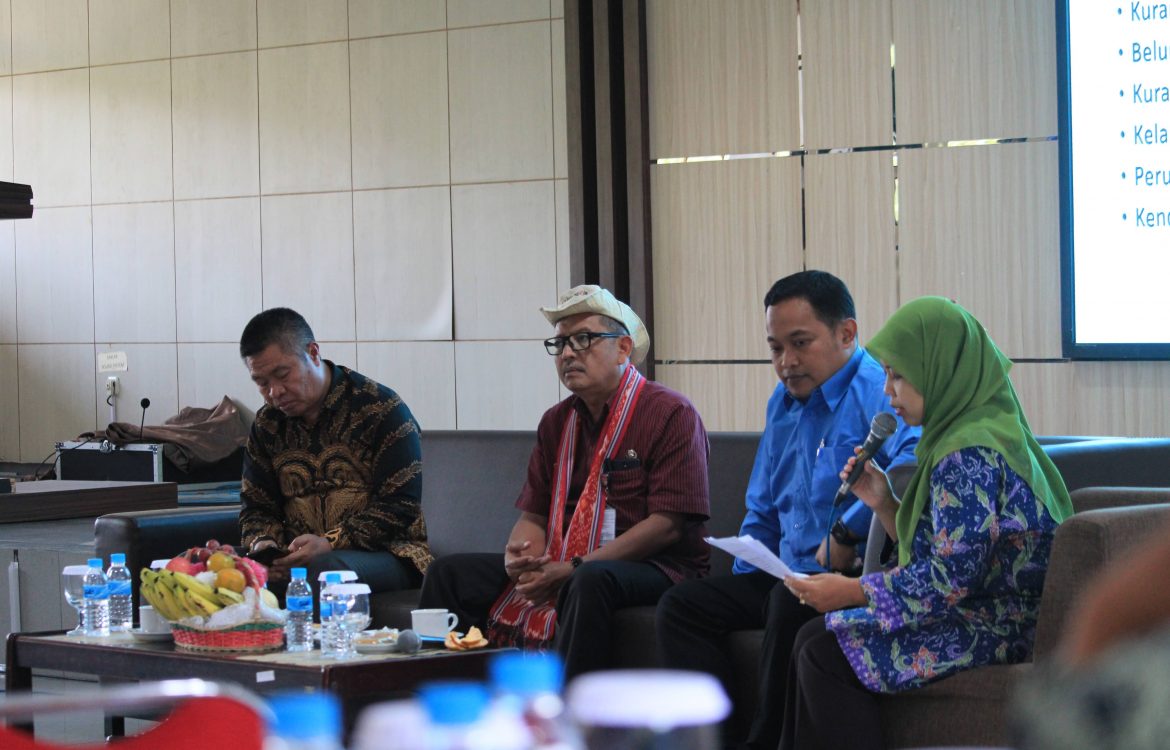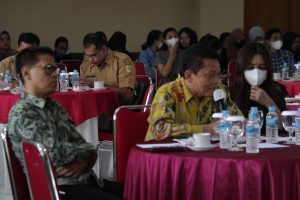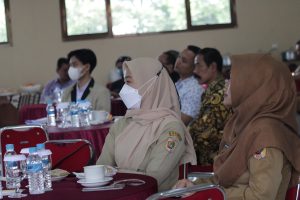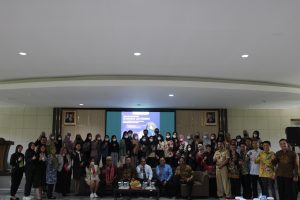
Discussing the Acceleration of the Tourism Industry and Creative Economy Development in Central Java, BPU FEB UNS Holds FGD
The rapid development of the creative industry and the tourism sector has its own appeal to encourage regional economic growth. The development of the creative economy in Indonesia is currently focused on 16 sub-sectors, in accordance with Presidential Regulation Number 6 of 2015 concerning the Creative Economy Agency, namely culinary, architecture, product design, interior design, graphic design, film, animation and video, music, fashion, performing arts, games and applications, crafts, radio and television, fine arts, advertising, photography, and publishing.
 Seeing the condition and uniqueness of each region opens a vast opportunity to develop this creative industry and tourism economic sector as a potential “niche market” commonly called Niche Market Destination. The function of the market niche itself is to classify the economic sector, in this discussion is the creative industry and tourism. For example, Surakarta City is well-known for its culture and batik production industry. This aspect is known as the market niche of each region, which has its own characteristics as a potential economic resource for the region.
Seeing the condition and uniqueness of each region opens a vast opportunity to develop this creative industry and tourism economic sector as a potential “niche market” commonly called Niche Market Destination. The function of the market niche itself is to classify the economic sector, in this discussion is the creative industry and tourism. For example, Surakarta City is well-known for its culture and batik production industry. This aspect is known as the market niche of each region, which has its own characteristics as a potential economic resource for the region.
In response to this situation, the Business Management Agency (BPU) of the Faculty of Economics and Business (FEB), Universitas Sebelas Maret (UNS) held a Focus Group Discussion (FGD) Business Gathering with Regulators and Industry, Tuesday, March 21, 2023, at the Soedarah Soepono Building Hall FEB UNS.
The FGD entitled “Acceleration of Tourism Industry and Creative Economy Development in Central Java” presented three speakers, Purwanto, SH., M.Par, Plt. (Acting Officer) Head of the Central Java Youth, Sports, and Tourism Office; Parmin Sastro Wijono, Vice Chairman of the Indonesian Tourism Industry Association (GIPI); Prof. Agung Nur Probohudono, SE, M.Si., Ph.D., Ak., CA., FEB UNS Academician.
Purwanto, SH., M.Par., in his presentation conveyed the priorities of regional development in Central Java in 2023, namely through increasing community-based eco-socio-tourism and the environment through improving tourism destination facilities, increasing tourism promotion, increasing accessibility, and optimizing the role of private and community in the tourism industry.
The support programs and activities carried out by the government include the construction of a Toll Road for the Solo-Jogja track, Bawen-Jogja track, Ahmad Yani Airport, and Adi Sumarmo track, improving roads and trans-Jateng transportation, intermodal intelligent platforms for train stations and terminals.
In terms of attractions, the government has hosted various events such as Sports Tourism Tour De Borobudur, the Borobudur Marathon, World Wayang Way, Supermoon Festival, Music, Socio-Cultural Events, Edutainment Tourism, performances in 20 tourist villages, and many others. The local government has also coordinated the arrangement of the area, the management of homestays, the arrangement of parking areas and traders (Pasar Kujon), and the construction of the grand mosque.
Purwanto further explained the potential of the creative economy in Central Java. The leading sub-sectors of the creative economy in Central Java are Fashion (40.40%), Culinary (30.01%), and Crafts (15.00%). Meanwhile, the highest growth was in the Television and Radio, Film, Animation, Video, Performing Arts, and Visual Communication Design sub-sectors.
 Meanwhile, Prof. Agung Nur Probohudono said that the development of the tourism sector is very important because it can create jobs, increase income, and encourage local governments to build and maintain infrastructure so that the quality of life of the local community also increases. Central Java has 1,130 tourist attractions with 418 natural attractions, 175 cultural tourism, 365 artificial tourism, 76 special interest tourism, and 96 other tourist attractions.
Meanwhile, Prof. Agung Nur Probohudono said that the development of the tourism sector is very important because it can create jobs, increase income, and encourage local governments to build and maintain infrastructure so that the quality of life of the local community also increases. Central Java has 1,130 tourist attractions with 418 natural attractions, 175 cultural tourism, 365 artificial tourism, 76 special interest tourism, and 96 other tourist attractions.
“Good governance is needed, thus, all tourist attractions in Central Java can grow and be sustainable. Good governance includes 5 principles of Good Corporate Governance, namely transparency, fairness, independence, and accountability,” he said.
Furthermore, universities hold an important and strategic role in developing and advancing the tourism sector and creative economy growth, especially in enhancing human resources contribution through learning, research, and community service activities. Meanwhile, the Vice Chairman of the Indonesian Tourism Industry Association explained the key factors for the success of the tourism industry including product, customer care, location, environment, realistic cost, and strategic marketing.
This agenda also marks a partnership signatory ceremony between FEB UNS and Lawu Park. The partnership was signed by the Vice Dean of Planning, Business Partnership, and Information FEB UNS, Dr. Mugi Harsono, SE, MSi., and Parmin Sastro Wijono from Lawu Park.

